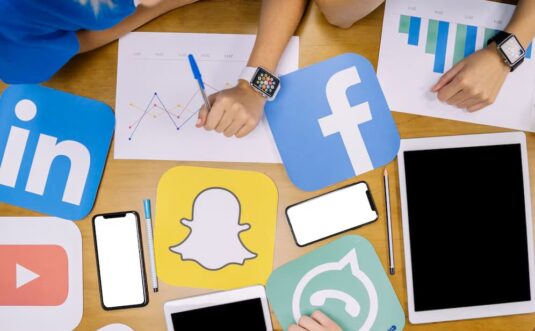In today’s fast-paced professional world, technical expertise and hard skills are no longer enough to guarantee career success. Soft skills—those intangible abilities that govern how you interact, adapt, and thrive—are increasingly valued by employers across industries. They can set you apart from equally qualified peers and open doors to new opportunities. Let’s explore the transformative power of soft skills and how they can advance your career.
Understanding Soft Skills
Soft skills are a combination of interpersonal, communication, and emotional abilities that influence how well you work with others. Unlike hard skills, which are job-specific and measurable, soft skills are more abstract but just as crucial.
Examples of Essential Soft Skills
- Communication: Expressing ideas clearly and listening effectively to understand others.
- Teamwork: Collaborating with colleagues to achieve shared goals while respecting diverse perspectives.
- Adaptability: Remaining flexible in the face of unexpected changes or challenges.
- Problem-Solving: Analyzing situations and developing practical solutions efficiently.
- Time Management: Prioritizing tasks and maintaining productivity under tight deadlines.
- Emotional Intelligence (EQ): Recognizing and managing emotions in yourself and others to navigate complex social interactions.
Why Employers Value Soft Skills
Soft skills enable employees to function effectively in dynamic environments, making them integral to teamwork, leadership, and customer service. For example, a technically brilliant IT professional who lacks communication skills may struggle to explain complex concepts to clients or collaborate with colleagues. On the other hand, someone with strong soft skills can adapt to various scenarios, fostering innovation and positive relationships.
The Impact of Soft Skills on Career Growth
Soft skills influence nearly every aspect of professional life, from building strong workplace relationships to securing leadership roles.
Strengthening Workplace Relationships
Strong communication and emotional intelligence help you navigate interpersonal dynamics, resolve conflicts, and collaborate effectively. These qualities foster trust and mutual respect, creating a positive and productive work environment.
Enhancing Leadership Potential
Soft skills are the foundation of effective leadership. Empathy, problem-solving, and adaptability enable leaders to inspire teams, manage crises, and drive organizational growth. Many successful leaders credit their ascent to the mastery of these abilities rather than technical expertise alone.
Increasing Employability
Employers seek candidates who can integrate seamlessly into their teams. Demonstrating soft skills during interviews or networking events showcases your potential to contribute beyond your job description. A survey by LinkedIn revealed that 91% of recruiters consider soft skills crucial in hiring decisions.
Developing Your Soft Skills

Improvement begins with self-awareness and a commitment to growth. Here are actionable steps to hone your soft skills:
- Embrace Lifelong Learning. Workshops, online courses, and mentorship programs can help you refine your skills. For instance, engaging in activities like playing strategy-based games can boost decision-making abilities. Games like https://playfortuneforfun.com/games/roulette/ teach risk assessment and the importance of calculated moves, which are valuable in professional settings.
- Practice Active Listening. Active listening means truly hearing and understanding what others are saying, rather than simply waiting for your turn to speak. This skill is crucial for effective communication, especially in collaborative environments.
- Seek Constructive Feedback. Ask colleagues, supervisors, or mentors for honest feedback on your interpersonal interactions. Use their insights to identify strengths and areas for improvement.
- Join Professional Groups. Networking with industry professionals helps you learn from their experiences and gain perspective on your own skills. Participating in group discussions and collaborative projects sharpens your teamwork and adaptability.
- Develop Emotional Intelligence. Mindfulness practices, such as meditation or journaling, can improve your self-awareness and emotional regulation. Being attuned to your emotions—and those of others—enhances relationships and decision-making.
Soft Skills in the Digital Era
The transition to remote work and increased reliance on digital communication have made certain soft skills even more critical:
Digital Communication
Remote collaboration requires clarity, brevity, and adaptability in virtual interactions. Proficiency in tools like Zoom, Slack, or Microsoft Teams can amplify these skills.
Self-Motivation
Without direct supervision, remote workers must rely on self-discipline and intrinsic motivation. Setting daily goals and tracking progress helps maintain productivity.
Cultural Awareness
Global teams demand an understanding of cultural nuances. Empathy and adaptability are vital for navigating diverse work environments.
Soft Skills Beyond the Workplace
Interestingly, soft skills also have applications outside of work. For instance, adaptability and strategic thinking are equally valuable in hobbies like gaming. Platforms such as https://playfortuneforfun.com/ provide opportunities to engage with games that challenge your mental agility and foster creativity—qualities that are transferable to professional scenarios.
Conclusion
Mastering soft skills is a journey, not a destination. These abilities shape how you interact, lead, and grow in your career. While technical skills get you in the door, soft skills determine how far you’ll go.
Start by identifying areas for improvement and embracing opportunities to practice. Whether it’s enhancing communication through feedback or sharpening problem-solving with strategy games, each step adds value to your professional profile. By integrating soft skills into your daily life, you not only advance your career but also enrich your personal development.




